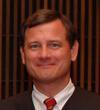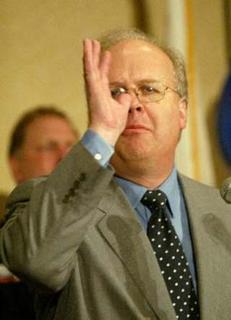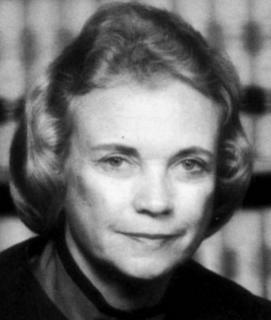The Freeman's Burden:
To defend the principles of human liberty; to educate; to be vigilant against the ever expanding power of the state.
Sunday, July 24, 2005
Friday, July 22, 2005
New Product

More on Judge Roberts

Wednesday, July 20, 2005
Here comes the judge...
 Background on Judge John Roberts
Background on Judge John Roberts Here's a bit of information to help you draw your own conclusions regarding President Bush's Supreme Court pick, Judge John G. Roberts, Jr.
Official bio from the CADC:
- Judge Roberts was confirmed by the Senate to a judgeship on the U.S. Court of Appeals for the D.C. Circuit on May 8, 2003, and sworn in on June 2 by Chief Justice Rehnquist. Judge Roberts graduated from Harvard College in 1976, and received his law degree in 1979 from Harvard Law School. Following graduation from law school, he served as law clerk for Judge Henry J. Friendly of the U.S. Court of Appeals for the Second Circuit and the following year to then-Associate Justice Rehnquist of the Supreme Court of the United States. Judge Roberts served as Special Assistant to United States Attorney General William French Smith from 1981 to 1982 and Associate Counsel to President Ronald Reagan from 1982 to 1986. He then joined Hogan & Hartson where he developed a civil litigation practice, with an emphasis on appellate matters. From 1989 to 1993 he served as Principal Deputy Solicitor General of the United States. He returned to Hogan & Hartson in 1993. At the time of his confirmation, Judge Roberts was the senior partner in charge of Hogan & Hartson's appellate practice. He is a member of the American Law Institute and the American Academy of Appellate Lawyers.
- 2003 Financial Disclosure Report
- President Bush and Judge Roberts attended Harvard University at the same time. Bush graduated from Harvard Business School in 1975 while Roberts graduated Harvard College in 1976
- Served only two years as a judge at the Court of Appeals for the District of Columbia Circuit. Before being appointed by George W. Bush, Roberts worked for Hogan and Hartson as a senior partner drawing in a salary in excess of $1 million per year.
- As deputy solicitor general, Roberts filed a discretionary amicus brief (friend of the court brief) in support of Operation Rescue, a group that blocked access to abortion clinics on a regular basis.
- During his brief time as a federal judge, Roberts wrote the appellate brief that supported the arrest of a 12 year-old girl for eating French fries on the Washington subway (Hedgepeth v. WMATA)
. . . more to come.
Tuesday, July 19, 2005
Monday, July 18, 2005
The Rove Thing
 I had hoped to avoid commenting on the Karl Rove leak story because, frankly, I think it is a really stupid thing to be spending time on. That said, the media, the Democrats, and now, the Libertarians, are all having kittens over it so my hand has been forced.
I had hoped to avoid commenting on the Karl Rove leak story because, frankly, I think it is a really stupid thing to be spending time on. That said, the media, the Democrats, and now, the Libertarians, are all having kittens over it so my hand has been forced.Thursday, July 14, 2005
Wednesday, July 13, 2005
A New Dawn?
 As many of you know, there has been a raging battle within libertarian circles about how to slow the drift away from Constitutional principles and personal liberties. I have been engaging in a series of rhetorical running gun battles with the purist wing of the party which seems content to continue to follow the same failed strategy of being there, waiting and ready, when the R's and D's make such a mess of things that everyone in America decides to buy a copy of "Why government Doesn't Work" and start voting Libertarian. I (and others) have argued that we must be relevant now and that means changing the party platform to promote practical libertarian solutions and engaging in realpolitik in a way that the purists find repugnant and corrupting. I ask, what is the point in having principles if one is impotent to advance them? It seems that the LP leadership has found some logic in this argument and has begun to implement a strategy consistent with making the party a player, rather then just a cynical spectator, in the political arena. For this they are to be commended. Below is a letter from Steven Gordon speaking to this point as well as my response. I encourage everyone to visit the LP BLOG and add your own voice to the debate.
As many of you know, there has been a raging battle within libertarian circles about how to slow the drift away from Constitutional principles and personal liberties. I have been engaging in a series of rhetorical running gun battles with the purist wing of the party which seems content to continue to follow the same failed strategy of being there, waiting and ready, when the R's and D's make such a mess of things that everyone in America decides to buy a copy of "Why government Doesn't Work" and start voting Libertarian. I (and others) have argued that we must be relevant now and that means changing the party platform to promote practical libertarian solutions and engaging in realpolitik in a way that the purists find repugnant and corrupting. I ask, what is the point in having principles if one is impotent to advance them? It seems that the LP leadership has found some logic in this argument and has begun to implement a strategy consistent with making the party a player, rather then just a cynical spectator, in the political arena. For this they are to be commended. Below is a letter from Steven Gordon speaking to this point as well as my response. I encourage everyone to visit the LP BLOG and add your own voice to the debate. Can Purism and Pragmatism Co-exist?
By Stephen Gordon
To begin, it is my belief that one can be simultaneously principled and practical. Contrary to some arguments, being practical does not necessarily involve "selling out." Likewise, being a "purist" does not automatically involve unwillingness to engage in real world politics. It seems that perhaps we are asking the wrong question.
Recent debate over the Iraq Exit Strategy has delivered to us the latest salvos in this never ending rhetorical war. However, I'd like to suggest that a phoenix may rise from the ashes of this particular battleground - a better understanding of ourselves, so we may better utilize our energies by fighting the real enemy.
After lengthy conversations on how best to define various factions within the LP, a friend suggested something to me in an e-mail. He stated that the conflicting sides in this internal conflict are between those who are ideologically driven and those who are politically driven. I believe he may be onto something important.
Recent debate over the exit strategy helped to define the line between the ideologues and those who wish to engage in politics. Lew Rockwell (whom I regard highly) perhaps summed up the ideological side best with, "Is it asking too much that the LP be part of the radical opposition, rather than aspire to be part of the inner circle of power?"
The short answer is "yes - it is too much to ask."
While the article was written about the LP Exit Strategy, I'd like to move beyond that specific issue to illustrate something more important that Rockwell revealed - that he, and many others, do not "get it" with respect to the proper role of the Libertarian Party.
To begin, the LP already is a radical organization, as viewed by most of the world. We also actively engage in activities to become part of the inner circle, as clearly directed in our bylaws: "⦠moving public policy in a libertarian direction by building a political party that elects Libertarians to public office; chartering affiliate parties throughout the United States and promoting their growth and activities; nominating candidates for President and Vice-President of the United States, and supporting Party and affiliate party candidates for political office; and, entering into public information activities."
The last time I checked, POTUS was still considered a powerful position. We are a political party, which means we must effectively engage in real world politics. Rockwell criticized us for having a "beltway mentality" - a point which Thomas Knapp effectively rebutted with,
"Newsflash: That is how America works now. On any given issue, the self-designated intellectual elites fight an ongoing internal war 'inside the Beltway,' attempting to capture the ears -- and minds -- of a few hundred 'movers and shakers' in government and media."
Even George Phillies, who maintains strong arguments for moving the national headquarters from the DC area, acknowledges that a press office would be required inside the beltway. The reason is obvious - the proximity to the circles of power is important when attempting to influence public opinion.
Rockwell then added, "What we need is not libertarianism with a plan."
It seems that we have been drifting aimlessly for far too many years precisely because we did not have a plan. Every time some sort of plan is introduced, ideologues of one variety or another attack it. As a case-in-point, even the recent LP press release critical of GOP meister-puppeteer Karl Rove is drawing fire on the LP blog.
Party organization requires a plan in order to be effective. Political campaigns crash and burn without proper planning. A comprehensive political strategy is, in effect, a plan. I prefer the rudder of a plan in order to someday actually reach the safe harbor of Liberty.
The Libertarian Party is beginning to engage in real politics in the real world. Like any person or organization which makes bold moves, it will make mistakes and will have failures. With experience comes wisdom - and the missteps should become fewer over time. Additionally, there will be some disagreement with anything the LP does. As libertarians, we don't march in lockstep.
I've got a request for my more ideological friends: Please give the LP the breathing room required to actually engage in the political arena. If you agree with a particular issue, feel free to jump on board. On the issues where you disagree, please don't impede the progress of the party. We will never reach total agreement on any issue - but we cannot continue to let this prevent us from engaging in politics. In most cases of disagreement, we will likely be closely aligned allies in whatever the issue may be - even if we disagree with each other on some nuances. Wouldn't it be preferable for us to fight a common enemy as allies -- as opposed to the current practice of fighting amongst ourselves while the enemy continues to gain ground?
Rockwell and many others do have a very important point to make. It is common for those in power to begin to abuse it. To my friends involved in the business of pragmatic politics, my message is that it is crucial for you to always maintain the ideals which separate the LP from other political parties. Once these important principles are disregarded, we become no better than our political opposition.
There is nothing wrong with being an ideologue - I consider myself one. However, in a conflict between ideology and politics - as a political party, the LP must act in a principled but political manner.
There is clearly room for both ideologues and political players within the libertarian movement. However, for movement to actually move, it is imperative that we work together instead of in opposition to one another.
I am heartened and excited to see the LP leadership giving this internal divide the attention and light of day that it needs and deserves. I donÂt think being an absolutist is a necessary condition for being ideological.
Politics IS the art of compromise. To approach politics without a willingness to compromise is like trying to carve a turkey with a wrench, itÂs just not the right tool for the job.
So letÂs start with the things we all agree on. The government is to big and the nature of the beast is such that its natural tendency is self-perpetuation and growth with the rights of the individual being the most obvious victim of this fact. We are the last line of defense and we all want to be effective in providing that security to our liberties.
The history of the party has been, well, rich with opportunities for improvement. (I just blew all my tactfulness for the entire day in one sentence). I am excited that the leadership is doing things to make us a political force. With their efforts, I have grown more active within the party because it has offered me hope that my efforts will not be merely a futile exercise in self-delusion.
The RÂs believe in economic freedom (so the conventional wisdom goes) and the DÂs believe in personal freedom (ditto), we believe in both. That is a message that has resonance and is easy to articulate. It does not require a working knowledge of either The Wealth of Nations or For The New Intellectualsshouldn't shouldnÂt be controversial within libertarian circles.
The national media has begun to crack open the door to our way of seeing the world. Mentions of libertarianism have become daily staples on FOX and MSNBC, I canÂt help but assume that the efforts of the LP to raise our profile has something to do with this. It is up to us to seize this momentum and do something positive with it.
Millions of Americans are disillusioned with their choices and ready for a new message. Are we going to embrace this opportunity or are we going scare all those people who havenÂt studied the history of libertarian thought back into the abusive arms of the major parties?
It all starts with a united fdoesn't That doesnÂt mean we have too sell out or we canÂt disagree on the fine points, but it does mean that we must agree that the purpose of a political party is to obtain and retain political power. Short of that, everything else is academic.
Tuesday, July 12, 2005
Japan privatizes post office
 As a Hayakian libertarian (read "pragmatic"), I have long advocated for privatizing many of the functions that gov't now monopolizes. The best argument for doing so is that when competition dominates a market, quality increases and prices decrease. History has shown us this over and over. Privatization also advances liberty by limiting the scope and scale of government, giving more choice to individuals and decreasing the reasons for burdensome taxation. Japan's Prime Minister Junichiro Koizumi succeeded last week in passing a bill that will privatize Japan's Post Office system which, in addition to providing postal service, which also sells insurance and investments and controls trillions of yen. I congratulate Japan on this move and encourage all Americans to see the wisdom in limiting government, expanding competition and advocating private solutions to public problems. For more on the Japan Post privatization act, click here
As a Hayakian libertarian (read "pragmatic"), I have long advocated for privatizing many of the functions that gov't now monopolizes. The best argument for doing so is that when competition dominates a market, quality increases and prices decrease. History has shown us this over and over. Privatization also advances liberty by limiting the scope and scale of government, giving more choice to individuals and decreasing the reasons for burdensome taxation. Japan's Prime Minister Junichiro Koizumi succeeded last week in passing a bill that will privatize Japan's Post Office system which, in addition to providing postal service, which also sells insurance and investments and controls trillions of yen. I congratulate Japan on this move and encourage all Americans to see the wisdom in limiting government, expanding competition and advocating private solutions to public problems. For more on the Japan Post privatization act, click hereWednesday, July 06, 2005
Unleash the Judges -- The libertarian case for judicial activism
By: Damon Root
The real legal challenge facing libertarians isn’t judicial activism; it is defending individual rights from the liberals and conservatives who seek to take our liberties away.
Monday, July 04, 2005
 Live8: a triumph for sentiment, not for results
Live8: a triumph for sentiment, not for resultsBy : Allister Heath
Reform the LP
Sunday, July 03, 2005
A moment of hope
 The sudden resignation of Supreme Court Justice Sandra Day O' Connor yesterday has caught a lot of people off guard. Advocates and opposition alike were gearing up for a fight to replace Chief Justice William Rehnquist, who suffers from terminal cancer. Bush has repeatedly promised the religious right that he would nominate a justice that expresses a moral, literalist constitutional temperament. If Bush nominated such a judge to replace Rehnquist, then every one shrugs and the left holds back because the appointment wouldn't change the balance of power on the court. O'Connor's sudden resignation is another thing entirely and not, I assure you, welcome news at the White House. The timing couldn't be worse. The President's polls are in the tank, Congress isn't on board with his agenda, the war looks like a mess, oil is hitting record highs and interest rates are rising. It looks like lame duckness has hit the Belt Way early this cycle. Add to the mix the long, hot days of summer spent with the 24 hour news cycle going wall to wall with as many as three Supreme Court nominee's; to replace Rehnquist and O' Connor and an appointment of a new Chief Justice, which also requires Senate Confirmation. We have reached, in seems, a moment of critical mass that will likely shift the balance in the Supreme Court for many years to come. The question then becomes, what will the new balance look like? Stay with The Freeman's Burden all summer as we focus on the confirmation hearings and the new balance in the Court.
The sudden resignation of Supreme Court Justice Sandra Day O' Connor yesterday has caught a lot of people off guard. Advocates and opposition alike were gearing up for a fight to replace Chief Justice William Rehnquist, who suffers from terminal cancer. Bush has repeatedly promised the religious right that he would nominate a justice that expresses a moral, literalist constitutional temperament. If Bush nominated such a judge to replace Rehnquist, then every one shrugs and the left holds back because the appointment wouldn't change the balance of power on the court. O'Connor's sudden resignation is another thing entirely and not, I assure you, welcome news at the White House. The timing couldn't be worse. The President's polls are in the tank, Congress isn't on board with his agenda, the war looks like a mess, oil is hitting record highs and interest rates are rising. It looks like lame duckness has hit the Belt Way early this cycle. Add to the mix the long, hot days of summer spent with the 24 hour news cycle going wall to wall with as many as three Supreme Court nominee's; to replace Rehnquist and O' Connor and an appointment of a new Chief Justice, which also requires Senate Confirmation. We have reached, in seems, a moment of critical mass that will likely shift the balance in the Supreme Court for many years to come. The question then becomes, what will the new balance look like? Stay with The Freeman's Burden all summer as we focus on the confirmation hearings and the new balance in the Court. 
 Contact Me
Contact Me












